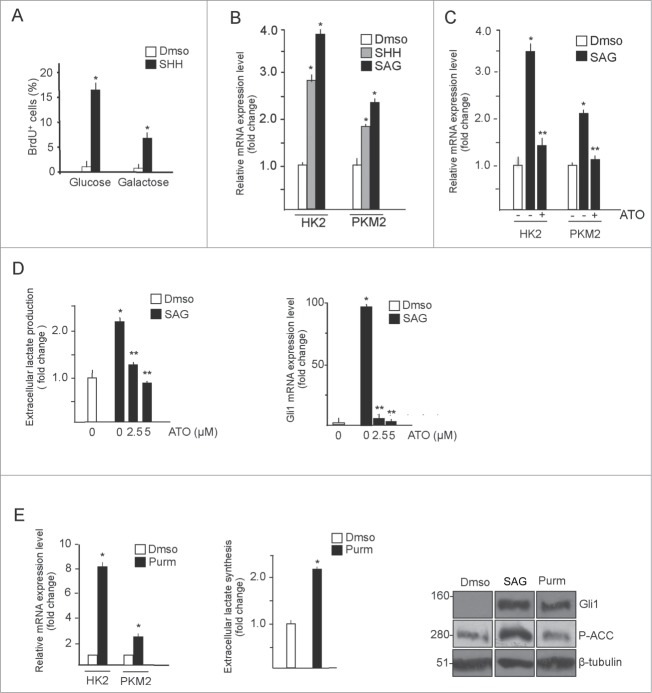Figure 1.
GCPs metabolic rewiring is sustained by canonical Hedgehog signaling. (A) GCPs proliferation requires glucose. BrdU assay in GCPs treated with SHH (3 μg/mL, 48 h) in the presence of glucose or D-galactose (25 mM, 48 hours). BrdU+ cells are expressed as a percentage of the total number of cells. Data represents the average −/+ SD of 3 independent experiments. *SHH vs control, P < 0.05. (B) Quantitative real-time PCR from isolated GCPs demonstrates that Hedgehog agonists (SAG, 200 nM; SHH, 3 μg/mL, 48 hours) induce HK2 and PKM2 mRNA expression. *SHH and SAG vs control, P < 0.05. (C) Hedgehog-induced HK2 and PKM2 mRNA expression is mediated by Gli transcription factors. GCPs were treated with SAG (48 hours) and arsenic trioxide (ATO, 5 μM, 24 hours) and transcript levels were analyzed. *SAG vs control, P < 0.05; **ATO vs SAG, P < 0.05. (D) Left, dose-response effect of ATO in SAG-induced L-lactate production in GCPs. Values were normalized for cell number and expressed as fold change relative to vehicle-treated values. Right, quantitative real-time PCR analysis of Gli1 transcript levels to show efficacy of the treatments. *SAG vs control, P < 0.05; **ATO vs SAG, P < 0.05. (E) Purmorphamine (2 μM, 72 hours) increases HK2 and PKM2 transcription (left) and lactate synthesis (middle) in GCPs. Western blot analysis (right) shows that purmorphamine treatment has no effect on ACC phosphorylation whereas SAG does. *Purmorphamine vs control, P < 0.01; n = 3.

